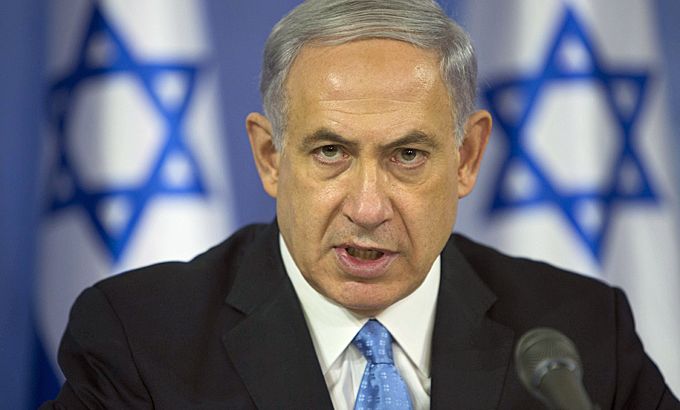Israel says Hamas ‘hit hard’ in Gaza fighting
PM Netanyahu speaks about truce amid criticism at home that offensive has done little to rein in Palestinian group.

Israel has made its first official statement over the ceasefire it signed with Hamas, saying the Palestinian group that runs Gaza has been dealt a major blow and that it did not receive any of the demands it had made.
In comments delivered in a prime-time address on national television, Prime Minister Benjamin Netanyahu on Wednesday said that “Hamas was hit hard,” adding that Israel “didn’t agree to accept any of Hamas’ demands” under the Egyptian-brokered ceasefire deal.
Keep reading
list of 4 itemsIsraeli air attack kills three sons of Hamas chief Ismail Haniyeh in Gaza
ICJ updates: Nicaragua’s case against Germany over Israel’s war on Gaza
How will Iran respond to Israel’s attack on its Damascus consulate?
“The ceasefire was achieved without any of the terms being given,” Netanyahu said, before reeling off key demands Hamas had made but were not accepted, including reopening the seaport and airport and removing restrictions on the movement of the people of Gaza.
He said tunnels and the infrastructure Hamas had built over the years had been destroyed and that ground forces were deployed for that reason, adding that Israeli forces had been withdrawn to prevent kidnapping by Hamas fighters.
Netanyahu’s comments came amid criticism over his handling of the seven-week military operation that has killed more than 2,200 people. Israel lost 64 soldiers and six civilians.
Both hard-liners in his governing coalition, as well as residents of rocket-scarred southern Israel, have said the war was a failure because it did not halt Hamas’ rocket attacks or remove the group from power.
The ambiguous ceasefire delivered an immediate halt in the fighting and has promised an easing of Israel’s blockade of Gaza to allow humanitarian aid and construction goods to enter for the rebuilding of the territory.
All goods are to go in under international supervision.
Israeli blockade
Hamas’ key demands are only to be addressed in a future round of talks expected next month in Cairo, the Associated Press news agency said.
It is seeking an end to the Israeli blockade, including the reopening of Gaza’s sea and airport. It also wants Egypt to reopen its Rafah border crossing, the territory’s main gateway to the outside world. Israel, meanwhile, wants Hamas to be disarmed.
Netanyahu said Israel “will not tolerate” any more rocket fire, and if the attacks resume, “we will respond even harder”.
Al Jazeera’s Jacky Rowland, reporting from west Jerusalem, where Netanyahu made his speech, said the prime minister tried to present the outcome of the war both as a strategic and political victory.
But our correspondent said that a lot of people who had been following the conflict were observing that Hamas seemed to have preserved a “considerable ability to strike at Israel both with mortar and rocket fire”.
Netanyahu made the comments as the open-ended ceasefire in the Gaza war was holding.
On the streets of the battered enclave, people headed to shops and banks, trying to resume the normal pace of life after seven weeks of fighting.
Thousands of others, who had fled the battles and sheltered with relatives or in schools, returned home, where some found only rubble, Reuters news agency reported.
Al Jazeera’s Andrew Simmons, reporting from Gaza, said people were now trying to work out what to do next.
“The United Nations estimates that if restrictions remain in place the way they have been, it will take something like 15 years to reconstruct the Gaza Strip,” our correspondent said.
“A lot rests on whether the new deal will speed up the delivery of building materials. There is a long way to go with this deal, and there is another fact that needs to be put forward and that is that the UN believes that the level of damage, the scale of loss, is something like three times the 2008/09 war.”
The agreement, which went into force at 1600 GMT on Tuesday, saw the warring sides agree to a “permanent” ceasefire which Israel said would not be limited by time, in a move hailed by the United States, the UN and top world diplomats.